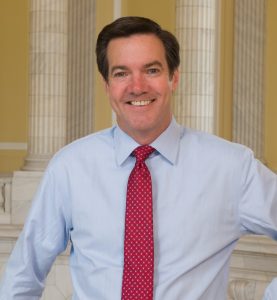
Every day, we see another headline about a deadly overdose, a family ripped apart by addiction, or an officer exposed to drugs during an arrest. The drug epidemic is gripping our nation, with my home state of West Virginia one of the hardest-hit places in the country. But no community is immune — addiction doesn’t discriminate based on geography, income, education level, or occupation.
A national crisis needs a national response, and that’s what I’ve been working on in Congress. West Virginia has more deaths per capita from opioid overdoses than any other state, but we are also making strides in innovative drug treatment and responses. I pushed legislation through the West Virginia Legislature to outlaw synthetic cocaine and marijuana and strengthen prescription monitoring to stop illegal pill mills.
In particular, I’ve been working to respond to a heartbreaking crisis that hasn’t received as much attention – babies born exposed to drugs during pregnancy.
No community is immune — addiction doesn’t discriminate based on geography, income, education level, or occupation.
This is called neonatal abstinence syndrome (NAS), and it’s affecting more newborns across West Virginia and the nation than ever before. Every 25 minutes, a baby is born in this country with NAS. Until you see a baby suffering from NAS, you cannot truly understand just how painful this condition is. These babies begin going through withdrawal as soon as the umbilical cord is cut. They are sensitive to light, noise, and even touch. Their tiny bodies shake with tremors, and they scream in pain. It is difficult even just to comfort them; they are suffering too deeply.
Before coming to Congress, I worked closely with health care and community leaders in my hometown of Huntington, West Virginia, to start Lily’s Place. This center provides specialized care for NAS newborns in a nurturing environment, while also offering support, education, and counseling services to families and caregivers.
Last year, Congress came together to pass the Comprehensive Addiction and Recovery Act (CARA), which is making a real difference in our fight to stop the drug epidemic and help break the cycle of addiction.
This law includes my legislation, the Nurturing and Supporting Healthy Babies Act, which focuses on NAS babies and will improve our understanding of how to treat these babies and help them get the healthy start in life that all newborns deserve.
Money authorized by CARA and appropriated by Congress is already flowing into our communities to support treatment, rehabilitation, education, and law enforcement.
Money authorized by CARA and appropriated by Congress is already flowing into our communities to support treatment, rehabilitation, education, and law enforcement. As we begin work in the House Appropriations Committee on the Fiscal Year 2018 appropriations bills, I will make sure that we are spending responsibly while also providing our states with the resources they need to combat this crisis in their communities.
Now is also an opportunity for us to build on the good work CARA will do in our states by looking ahead to future legislation. I worked together with Congressman Mike Turner of Ohio to introduce the Caring Recovery for Infants and Babies (CRIB) Act in May. The CRIB Act would build on the best practices of Lily’s Place in Huntington for treating babies born exposed to heroin, opioids, and other drugs. It would also make it easier for similar centers to open across the country by cutting regulatory red tape.
I’m committed to providing West Virginia – and all of our states – with the resources they need to address the drug crisis, provide treatment, and stop drug trafficking. To get our communities back on track, it will take all of us working together.
Evan Jenkins represents the 3rd District of West Virginia in the U.S. House of Representatives.




